News
Official opening for Wales’ first solar village
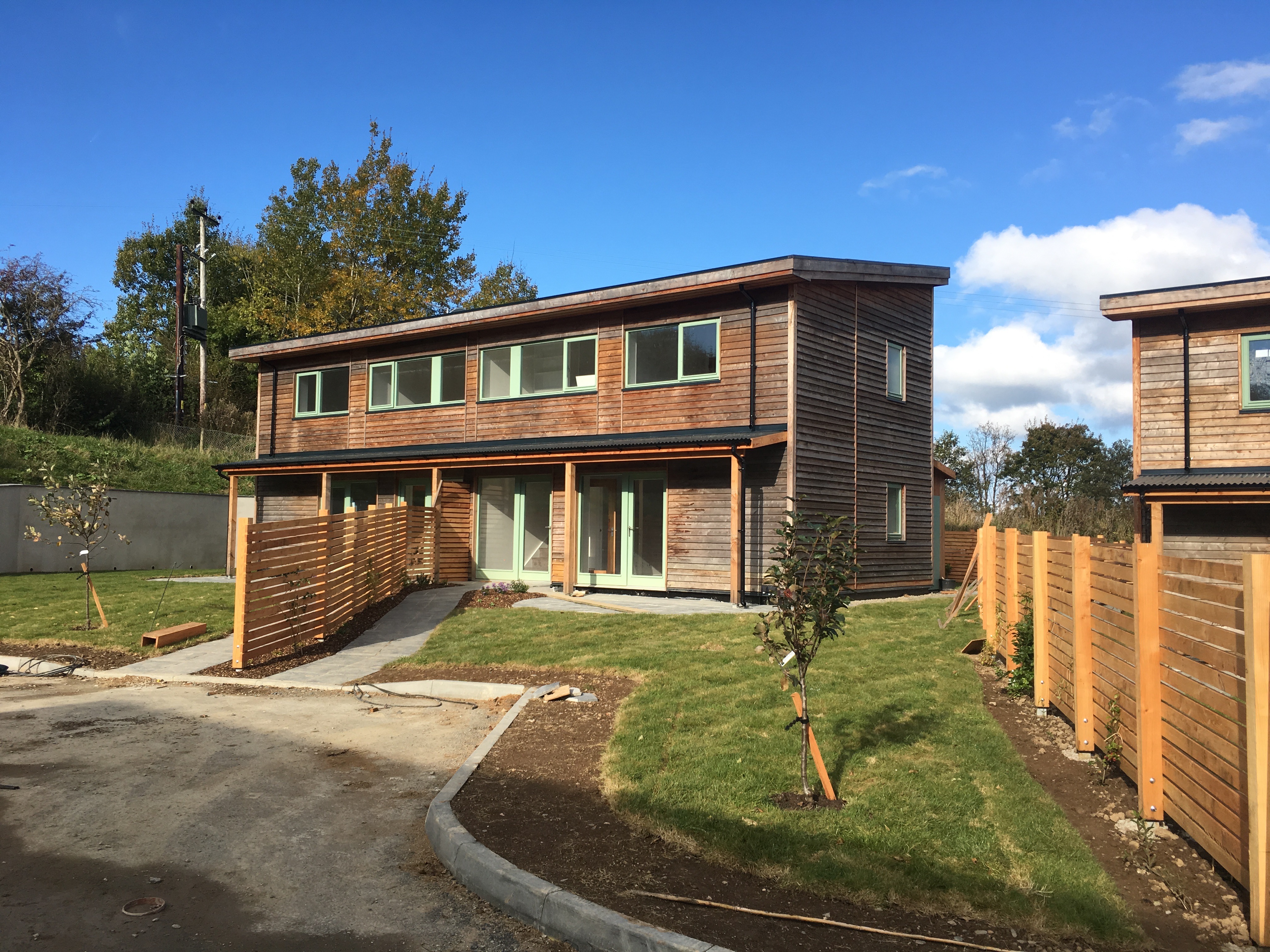
 TODAY (Jan 5) the Cabinet Secretary for Environment and Rural Affairs, Lesley Griffiths, will officially open the first solar village in Wales.
TODAY (Jan 5) the Cabinet Secretary for Environment and Rural Affairs, Lesley Griffiths, will officially open the first solar village in Wales.
The village, named Pentre Solar, is situated at the Rhosygilwen estate and comprises six affordable houses which will use just 12% of the energy of a traditional home.
Funded by private sector company Western Solar, each three bedroom home has a modern design featuring a fitted kitchen, superfast broadband (as well as satellite and Freeview TV connections), a landscaped garden and, most interestingly, access to a shared electric car.
A highly innovative project, 80% of the heating needs for all of the properties will be provided by solar energy, meaning extremely low energy costs for future tenants. Adding to the sustainable nature of the build, the all timber homes also feature 11 inch insulation.
In an effort to address the affordable housing crisis in Pembrokeshire, the properties will be available for rent to those on the council housing register – and at 20% below the rental market rate. Those hoping to apply will need to have connections with the surrounding parishes; however, beyond that criteria, the houses will be allocated on a first come, first serve basis.
The idea behind the ‘revolutionary concept’, according to Western Solar, is to ‘build a truly sustainable business that can benefit the local community’.

The Herald was able to speak to the man behind the ambitious development, Western Solar CEO and 2015 Eco Entrepreneur of the Year, Dr Glen Peters. As well as finding out a bit more about his links with Pembrokeshire, we discussed issues around affordable housing, the need for sustainable development, existing practices of the building industry, and future plans for Western Solar.
Having worked in London for some 35 years – and lived in Pembrokeshire ‘on and off’ for the last 20 years – Glen described how he ‘gradually fell in love with Pembrokeshire’, and has now based himself here full-time.
Discussing the need for a development such as Pentre Solar, Glen said: “There is unlimited demand for this – there are so many people in dire need of good quality housing.”
Admitting he wasn’t entirely sure of its accuracy, Glen referred to a statistic by Pembrokeshire County Council which estimated that the county is currently in need of some 6,000 homes.
One of the major obstacles in providing affordable housing, according to Glen, is ‘finding affordable land’.
He added: “Most of the available land to build on has been snapped up by developers.
“For a house to be affordable, you can’t have a plot that costs fifty to a hundred grand.”

Seemingly undeterred by this financial obstacle, Glen stated: “For every problem, we have to find a solution.”
The solution in this instance, Glen added: “Local authorities need to release the land banks that they have.”
Elaborating on this comment, Glen went on: “This is not ripping up green fields; this is disused properties. The whole concept of Pentre Solar is small little hamlets.”
Another issue which Glen found during the Pentre Solar development is a certain objection by financial institutions towards the building materials used for the project.
“This is not a traditional build; this is not bricks and mortar, so building societies don’t want to lend.
“There is a physical barrier that we need to overcome about all timber houses.”
Developing on this idea, the question was posed as to how this new strategy for housing provision could change building industry practices in the UK.
Reiterating a previous point, Glen said: “The existing supply chains are all based around bricks and mortar; all the skills and all the trades are geared towards that as well.”
Contrary to modern practice, Glen emphasised: “Carpentry is the core skill for the house.”
With reference to ‘critical mass’, the eco entrepreneur went on to suggest the need for greater training and apprenticeship schemes for carpentry practices.
At the heart of the entire development is the theme of sustainability, with Glen stating: “The concept of recycling is very much at the core of our proposition. We’re recovering paper and using that as insulation – it’s all about trying to recycle, either the land, the insulation, the timber; we need that supply chain to be able to provide that.”
While the design for Pentre Solar was developed around sustainability, Glen admitted that not every aspect of the design was able to be implemented into the build. One such design was ‘rainwater harvesting’, a method of collecting rain and reusing it during the summer months.
With an eye on the future, Western Solar appear to have big plans in the pipeline. With reference to a comment about building 1,000 sustainable, affordable homes in the UK, Glen said how this falls under the company’s 10 year plan.
The company is also operating a three year plan which, if successful, will see the development of 100 homes ‘largely between counties in West Wales – Pembrokeshire, Carmarthenshire and Ceredigion’.
Glen added: “The most important things are access to land and the finance. The idea would be to create another hub in Wales and replicate the same idea somewhere else.”
Building on this point, Glen said: “When we’ve got used to the idea of replication with the same system repeatedly, then we think we could get to our target of 1,000.”
Reflecting on the finished product of Pentre Solar, Glen said: “I’m very pleased – it’s one of those things with any project, you go through enthusiasm, excitement, and then you reach a point were you feel destroyed, and then suddenly you see light at the end of the tunnel.”
“The reality is absolutely amazing.”
Glen is currently looking for sites for his next development, stressing: “We need to work on our relationships within the local authority.”
Pentre Solar is not the first green initiative that Glen has received praise for; he was also behind the first ever ‘solar park’ in Wales. Completed in 2011, the near 10,000 strong solar park – which used cutting edge technology imported from the United States – is designed to utilise the often cloudy weather of the area.
News
Wife and lover jailed for plot to murder husband to continue affair
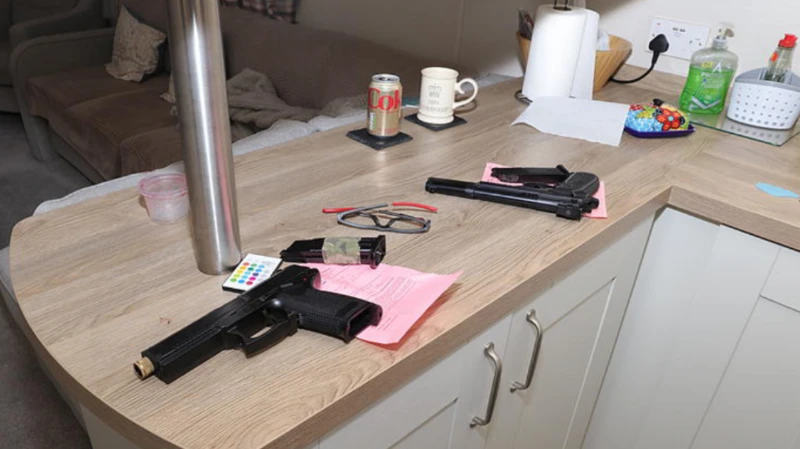
A WOMAN and her lover have been jailed after conspiring to murder her husband of ten years so they could continue their affair.
Michelle Mills and Geraint Berry, both aged 46, were each sentenced to 19 years’ imprisonment at Swansea Crown Court after a jury found them guilty of plotting to kill Christopher Mills in a plan intended to make his death appear as a suicide.
The conspiracy was uncovered after Mr Mills, 55, an ex-serviceman, fought back during a late-night ambush at a caravan the couple were staying in at Cenarth, Carmarthenshire, on Friday, September 20, 2024.
Berry, assisted by Steven Thomas, forced entry into the caravan armed with imitation firearms, gas masks and cable ties. A pre-prepared suicide note falsely purporting to have been written by Mr Mills was later recovered by police.
The attack failed when Mr Mills defended himself, managing to disarm the intruders and forcing them to flee on foot.
Armed response officers, police dog units and the National Police Air Service were deployed. Berry and Thomas were arrested shortly afterwards after being spotted hiding in bushes by a police helicopter.
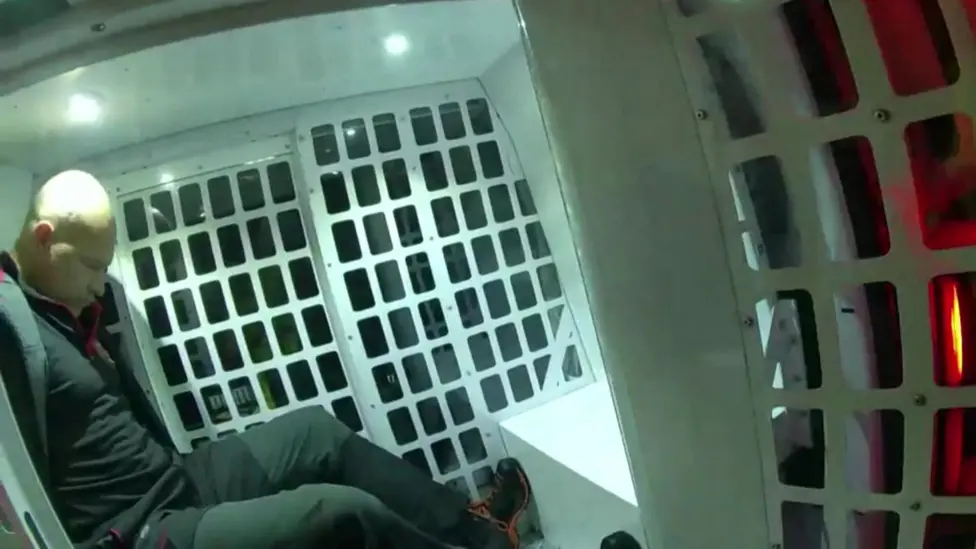
The incident was initially reported to Dyfed-Powys Police by Michelle Mills, who claimed to be unaware of any motive for her husband to be targeted. At first, officers treated the matter as an aggravated burglary.
However, detectives quickly became suspicious.
Detective Inspector Sam Gregory, of Ceredigion CID said: “We had a report of two masked men attempting to gain access to a caravan and assaulting the owner. On the surface, it appeared the case would be fairly straightforward.
“However, when Berry and Thomas were searched, officers found gas masks, imitation firearms and, most disturbingly, a typed suicide note said to have been written by Christopher Mills.”

The investigation was escalated to CID, where digital forensic enquiries uncovered extensive communication between Mrs Mills and Berry revealing a long-running affair and detailed plans to murder her husband.
Messages exchanged from August 2024 onwards showed the pair discussing multiple methods of killing Mr Mills, including suffocating him while he slept, overdosing him on sleeping tablets, poisoning his food with antifreeze or foxglove, and staging an explosion in his car.
Berry also contacted an associate asking how to obtain a firearm with a suppressor and how to make a vehicle explode when the ignition was started.
The court heard there were two aborted attempts to ambush Mr Mills at the caravan on August 28 and 29, with Berry injuring his knee during one failed attempt.
On the third attempt, Mrs Mills told Berry she would encourage her husband to drink alcohol so he would fall asleep. Messages showed Berry informing her he had arrived at the holiday park moments before the attackers burst into the caravan.
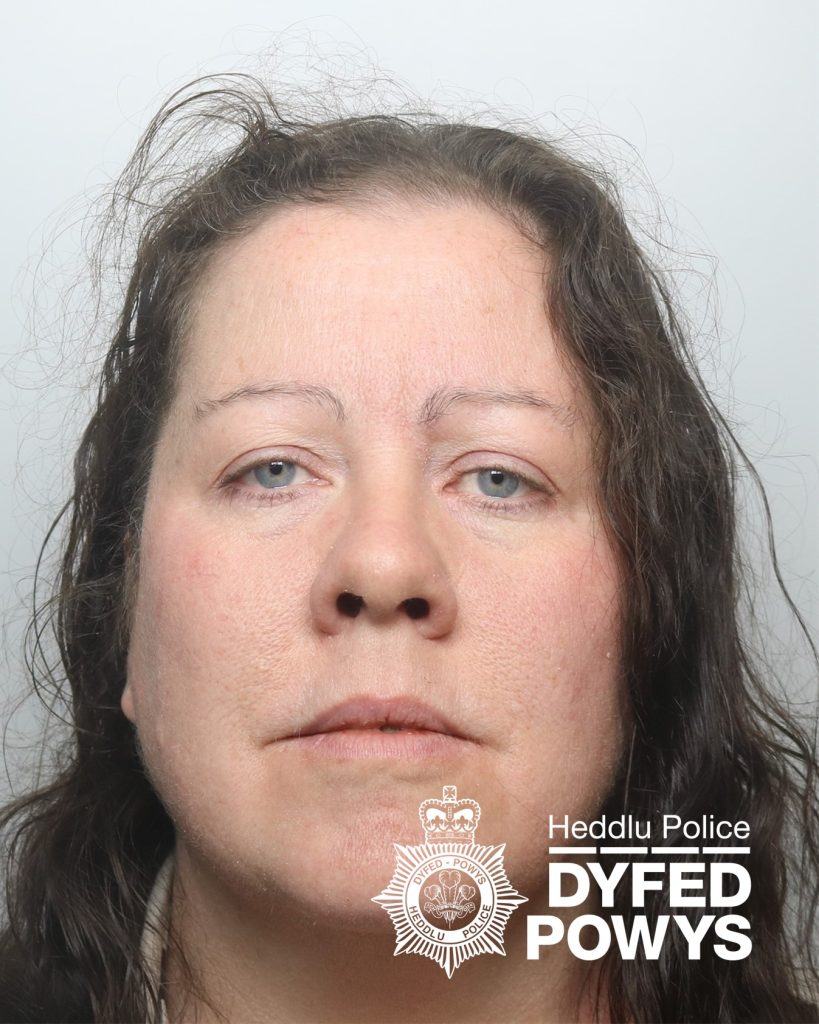
Immediately after the men fled, Mrs Mills sent Berry messages urging him to escape, delete communications and expressing affection, despite her husband having just been assaulted.
Mrs Mills was later arrested at her home in Maes Ty Gwyn, Llwynhendy. Despite denying involvement, she told an arresting officer she would be “going to jail for this”.
DI Gregory said: “From start to finish, Mrs Mills denied any involvement. She initially claimed she did not know the attackers, and later said she believed the messages were just fantasy.
“At no point did she attempt to stop Berry or tell him she did not want the plans to go ahead. Her only concern was not getting caught.”
Sentencing the pair, Mr Justice Nicklin said the plot involved “significant planning and premeditation”, despite being “poorly executed”, and placed Mr Mills’ life at genuine risk.
The court heard victim impact evidence describing how the attack had “pretty much ruined” Mr Mills’ life, leaving him suffering flashbacks and long-term psychological harm.

Mrs Mills was also sentenced to 18 months’ imprisonment for perverting the course of justice, to be served concurrently with her 19-year sentence. Berry received a concurrent 18-month sentence for possession of an imitation firearm.
Steven Thomas, aged 47, of Clos Coffa, Clydach, was found not guilty of conspiracy to murder but had previously admitted possessing a firearm with intent to cause Christopher Mills to believe unlawful violence would be used against him. He was sentenced to 12 months in custody, with time already served on remand taken into account.
The judge said there had been an element of coercion or exploitation by Berry in relation to Thomas, who expressed remorse for his actions.
DI Gregory added: “It is easy to focus on the dramatic details of this case and forget there is a real victim. Mr Mills’ life was genuinely at risk, and the person he should have been able to trust the most was behind the plot.
“He has shown remarkable strength and courage throughout this investigation, and I hope he can now move forward and begin to process what he has endured.
“Despite their claims that this was fantasy, the evidence showed the conspiracy was real, calculated and repeated. Mills and Berry showed no remorse for the devastation they caused.”
Crime
Milford Haven man denies child sex charges as trial date set


A MAN originally from Milford Haven has pleaded not guilty to a series of sexual offences involving a child after recently moving to Cornwall.
James Kershaw, aged 45, formerly of Milford Haven and now living in Quethiock, Cornwall, appeared in court on Friday (Dec 19), where he denied all four sexual charges put to him.
The hearing was his first Crown Court appearance in the case, during which a trial date was fixed for October 5.
Kershaw was allowed to remain on bail under strict conditions, including that he must have no contact with any prosecution witnesses.
Kershaw appeared via video link from his solicitor’s office in Cornwall. The judge described this as “a very generous decision by the listings officer” and said it had “presumably been arranged due to the distance from you to the court”.
Allegations denied
The charges relate to alleged incidents said to have taken place in Liskeard, Cornwall, between October 26 and November 1, 2023.
Kershaw is accused of engaging in sexual communication with a child under the age of 16 and of causing a child aged 13 to watch sexual activity. He also faces two allegations of causing or inciting a girl aged 13 to engage in sexual activity of a non-penetrative nature on separate dates.
In addition, Kershaw is charged with two counts of breaching a Sexual Harm Prevention Order imposed by Derby Crown Court in May 2022. These allegations include the use of an undisclosed Facebook account and the deletion of messages, both of which are said to be prohibited under the terms of that order.
Kershaw denies all allegations.
The court ordered that Kershaw may remain on bail pending trial, subject to conditions including a strict ban on contacting any witnesses.
The complainant’s identity is protected by law under the Sexual Offences (Amendment) Act 1992.
The case is due to return to court when the trial begins in October.
Community
Craig Flannery appointed as new Chief Fire Officer
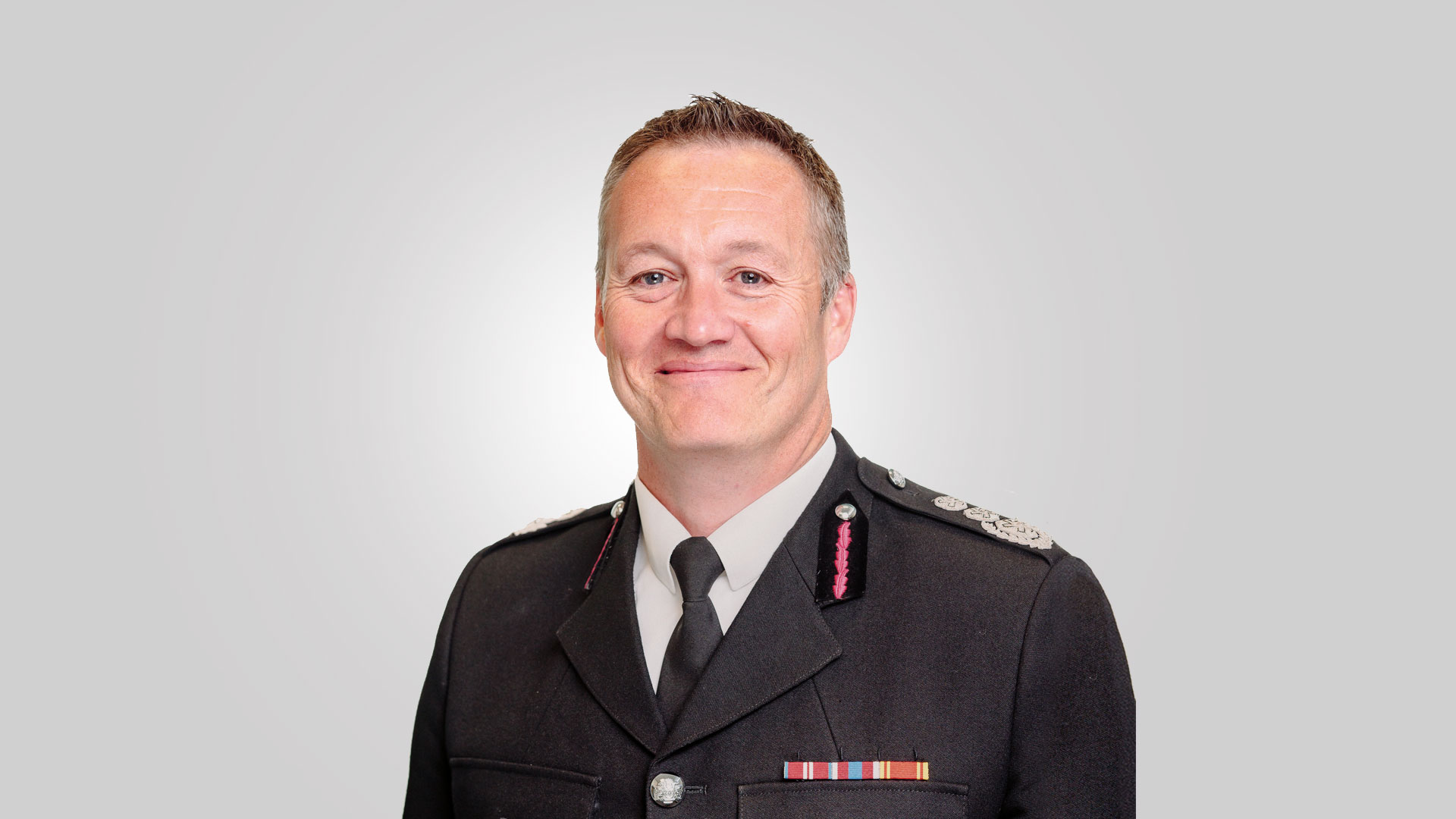
MID AND WEST WALES FIRE SERVICE LEADERSHIP CHANGE
MID and West Wales Fire and Rescue Service has announced the appointment of Craig Flannery as its new Chief Fire Officer, with effect from Monday, December 15, 2025.
Mr Flannery has served with the Service for more than twenty years, progressing through a wide range of middle management and senior leadership roles across both operational and non-operational departments.
During his career, he has been closely involved in strengthening operational delivery, risk management and organisational development. His work has included leading innovation in learning and development, overseeing the Service’s On-Call Improvement Programme, and driving investment in key enabling functions such as workforce development and information and communication technology.
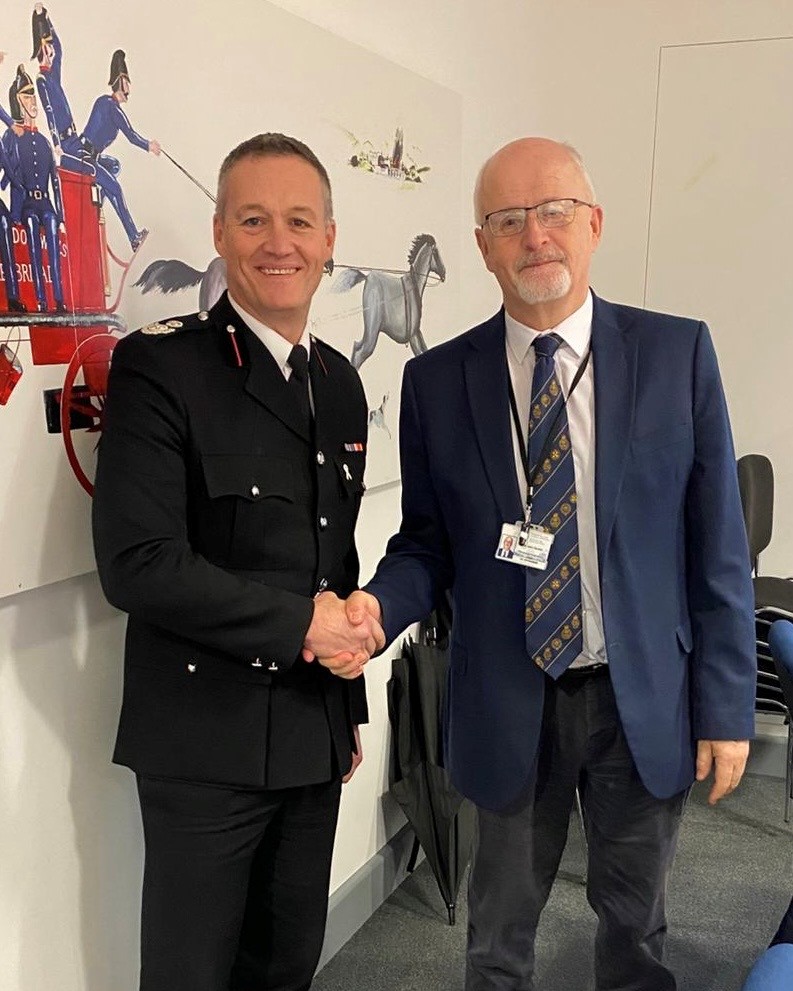
The appointment followed a rigorous, multi-stage recruitment process led by Mid and West Wales Fire and Rescue Authority. Candidates were assessed through structured interviews, strategic leadership exercises and scenario-based assessments designed to test operational judgement, organisational vision and the ability to lead a modern fire and rescue service.
External professional assessors were also engaged to provide independent scrutiny, ensuring the process met high standards of fairness, transparency and challenge.
Mr Flannery emerged as the strongest candidate, demonstrating clear strategic leadership capability, detailed organisational knowledge and a strong commitment to community safety and service improvement.
Councillor John Davies, Chair of Mid and West Wales Fire and Rescue Authority, said: “Craig brings a deep understanding of our Service and a clear vision for its future. His appointment will strengthen our ability to innovate, support our workforce and deliver high-quality protection for the communities we serve.
“As we navigate a rapidly changing landscape, Craig’s experience in driving innovation and organisational development will be invaluable in helping us adapt and transform for the future.”
Commenting on his appointment, Mr Flannery said: “It is a privilege to lead this outstanding Service. I am committed to supporting our people, strengthening partnerships and building on the strong foundations already in place.
“As the challenges facing fire and rescue services continue to evolve, we must modernise and innovate, ensuring we have the skills, technology and capability needed to meet the needs of our communities. I look forward to working with colleagues and partners across Mid and West Wales to deliver a resilient, progressive Service that keeps people safe and places our staff at the heart of everything we do.”
-

 Crime2 days ago
Crime2 days agoMilford Haven man jailed after drunken attack on partner and police officers
-

 News5 days ago
News5 days agoDyfed-Powys Police launch major investigation after triple fatal crash
-

 Crime2 days ago
Crime2 days agoTeenager charged following rape allegation at Saundersfoot nightclub
-

 Crime3 days ago
Crime3 days agoMan charged with months of coercive control and assaults
-

 Crime4 days ago
Crime4 days agoMan sent to Crown Court over historic indecent assault allegations
-

 Crime6 days ago
Crime6 days agoMan spared jail after baseball bat incident in Milford Haven
-

 Crime4 days ago
Crime4 days agoMilford Haven man admits multiple offences after A477 incident
-

 Crime3 days ago
Crime3 days agoWoman ‘terrified in own home’ after ex breaches court order





















